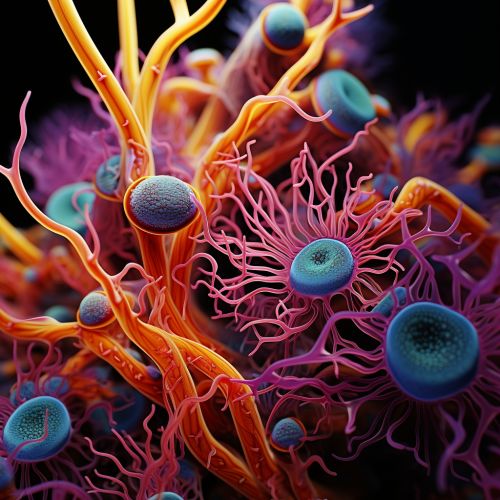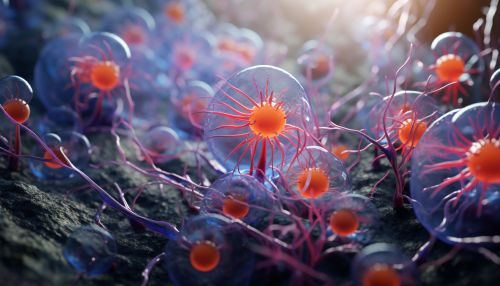Vasopressin
Overview
Vasopressin, also known as antidiuretic hormone (ADH), is a neurohypophysial hormone found in most mammals. Its two primary functions are to retain water in the body and to constrict blood vessels. Vasopressin regulates the body's retention of water by acting on the kidneys and the sweat glands. In the kidneys, it acts on cells in the collecting duct to promote reabsorption of water back into the circulation. In high concentrations, it also raises blood pressure by inducing moderate vasoconstriction.


Structure and Synthesis
Vasopressin is a peptide hormone that is synthesized in the hypothalamus. It is composed of nine amino acids (a nonapeptide), with a cyclic structure formed by a disulfide bridge between two cysteine residues at positions 1 and 6. The structure of vasopressin is very similar to that of oxytocin, differing only by two amino acids.
Function
Vasopressin has a variety of effects on the body. Its most important role is to regulate the body's retention of water; it is released when the body is dehydrated and causes the kidneys to conserve water, thus concentrating the urine and reducing urine volume. In high concentrations, it also raises blood pressure by inducing moderate vasoconstriction. In addition, vasopressin has a variety of neurological effects on the brain, including influencing social behavior, sexual motivation and pair bonding, and maternal responses to stress.
Clinical Significance
Vasopressin has important clinical significance as it is involved in several conditions including diabetes insipidus, von Willebrand disease, and septic shock. It is also used therapeutically in various conditions, such as in the treatment of diabetes insipidus and certain gastrointestinal disorders.
